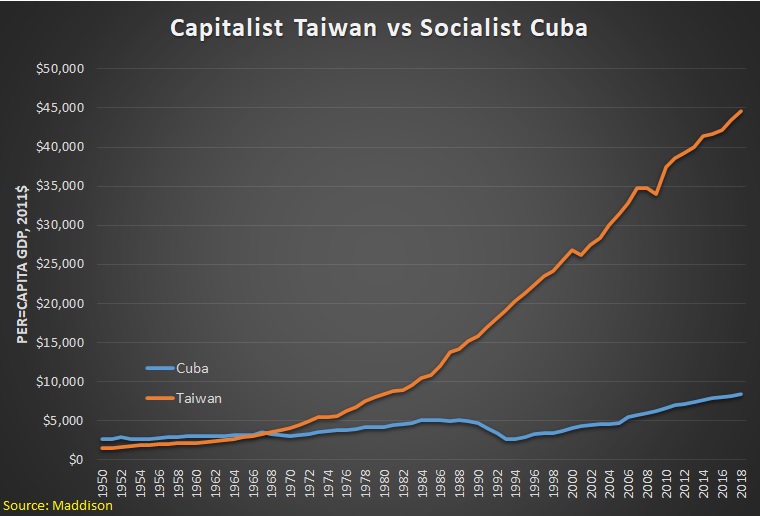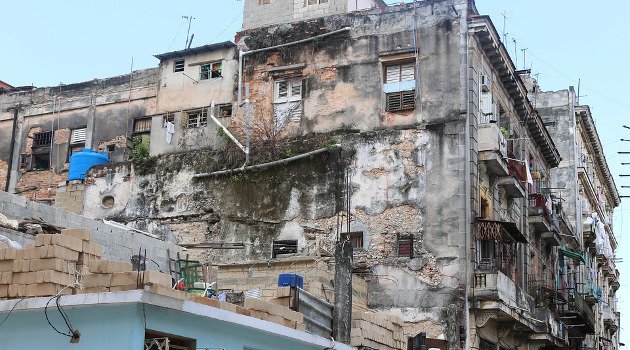Economists of all types agree with “convergence theory,” which is the notion that poor countries should grow faster than rich countries.
Though they are usually wise enough to also say “ceteris parisbus,” which means the theory applies if other variables are similar (the translation from Latin is “other things equal”).
I’m very interested in this theory because we can learn a lot when we look at nations that don’t have “equal” policies.
And the biggest lesson is that you have divergence rather than convergence if one nation follows good policies and the other one embraces statism.
Take a look, for instance, at what’s happened to per-capita economic output (GDP) since 1950 in Taiwan and Cuba.

The obvious takeaway from these numbers from the Maddison database is that Taiwan has enjoyed spectacular growth while Cuba has suffered decades of stagnation.
If this was a boxing match between capitalism and socialism, the refs would have stopped the fight several decades ago.
By the way, some folks on the left claim that Cuba’s economic misery is a result of the U.S. trade embargo.
In a column for the Foundation for Economic Education, Emmanuel Rincón explains the real reason why these two jurisdictions are so wildly divergent.
…the Communist Party of Cuba has blamed the United States for Cuba’s misery and poverty, alluding to the “blockade” that the U.S. maintains against Cuba. However, …the rest of the world can trade freely with the island. …Taiwan’s economy is one of the most important in the world, with a poverty rate of 0.7%, as opposed to Cuba, which has one of the most depressed economies on the planet and 90% of its population living in poverty. What is the difference between the two islands? The economic and political model they applied in their nations. …Taiwan has the sixth freest economy according to the Index of Economic Freedom… While Taiwan took off with a capitalist model, Cuba remained anchored in the old revolutionary dogmas of Fidel Castro… With popular slogans such as redistribution of wealth, supposed aid to the poor, and socialism, Fidel Castro began to expropriate land and private companies to be managed by the state…today the GDP of the Caribbean island is five times less than that of Taiwan, and 90% of its population lives in poverty, while in the Asian island only 0.7% of its population is poor. It is definitely not the fault of the “blockade”, but of socialism.
To be sure, Cuba would be slightly less poor if there was unfettered trade with the United States, so maybe Taiwan would only be four and one-half times richer rather than five times richer in the absence of an embargo.
The moral of the story is that there’s no substitute for free markets and small government.
P.S. Though I appreciate the fact that our friends on the left are willing to extol the virtues of free trade, at least in this rare instance.
———
Image credit: Max Pixel | CC0 Public Domain.


